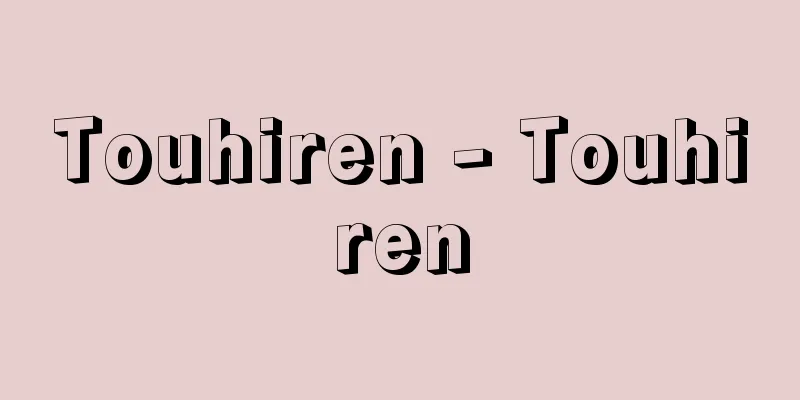Clothing - Emon

|
In art, it refers to the wrinkles in clothing depicted in paintings and sculptures. The way they are expressed varies depending on the era and the artist, and the honpa style folds on Buddhist statues from the early Heian period are a typical example. Source: Encyclopaedia Britannica Concise Encyclopedia About Encyclopaedia Britannica Concise Encyclopedia Information |
|
美術用語としては,絵画,彫刻に描かれている衣装類の皺のこと。その表現は時代,作者によって特色があり,平安時代初期の仏像の翻波 (ほんぱ) 式衣文はその代表的な例である。
出典 ブリタニカ国際大百科事典 小項目事典ブリタニカ国際大百科事典 小項目事典について 情報 |
Recommend
Kokoro - Heart
A full-length novel by Natsume Soseki. It was ser...
Dawes Plan
A reconstruction plan for Germany's reparation...
nuthatch
...or a general term for the genus Sitta in the f...
Functional Amblyopia
…The term amblyopia includes the following two co...
Reverse side
〘 noun 〙 Reverse pattern. ※Ukiyo-zoshi, Amorous Li...
Friedrich Wilhelm IV
1795‐1861 King of Prussia. Reigned 1840-61. Son of...
Iran Consortium
…But the U.S. major The Iranian oil companies (Ex...
Novomeský, L. (English spelling)
…A Central European republic that existed from 19...
Shadow - Yogo
〘Noun〙 ("You" and "Kou" are th...
Oyamazaki jinin - Oyamazaki jinin
...It has long been a key location for transporta...
"Edo Haikai Danrin Toppyakuin"
...A collection of haikai renku (linked verse). T...
Ton Yabghu Qaghan
?‐628 Khagan (Khan) during the height of the Weste...
Shared house - Kyouyuusha
…After the Meiji period, Western-style mutual aid...
Aloha shirts - aloha shirts
[Clothing] The university brand of Osaka Gakuin Un...
Dong Xi-xiang (English: Dong Xi-xiang)
A narrative work of the Jin dynasty in China. Writ...









